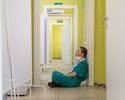What to Look for in In-Home Care: Ensuring Quality and Compassion
The availability and flexibility of the in-home care agency are also essential factors to consider. . Look for agencies that...
The availability and flexibility of the in-home care agency are also essential factors to consider. . Look for agencies that...
Nursing is a vital field that offers a range of opportunities to those passionate about healthcare. The profession demands dedication and empathy, as nurses work directly with patients, providing care and support. With various roles and specializations, a career in nursing is both diverse and rewarding, allowing individuals to make significant impacts on the lives of others.
Understanding the Basics of Nursing
At its core, nursing involves caring for individuals, families, and communities to achieve, maintain, or recover optimal health and quality of life. Nurses are tasked with a wide range of duties, from administering medication and monitoring patient progress to educating patients about health management. The role of a nurse is crucial in the healthcare system, acting as the primary point of contact for patients and a critical link between them and the rest of the healthcare team.
(more…)Investing in the development of core nursing skills is crucial for fostering a supportive and efficient healthcare environment. By prioritizing...
 Have you ever thought about what your rights are when a nurse hurts you? Knowing these rights can help protect you in strange scenarios.
Nursing abuse can have very bad effects, so people need to be aware of it. This guide will teach you about your rights and protect you.
To take an informed approach, you need to be able to spot common malpractice cases and stand up for your rights. To protect your health, stay aware and take action.
Learn the basics of nursing malpractice cases to protect your rights in health care. Read on!
Have you ever thought about what your rights are when a nurse hurts you? Knowing these rights can help protect you in strange scenarios.
Nursing abuse can have very bad effects, so people need to be aware of it. This guide will teach you about your rights and protect you.
To take an informed approach, you need to be able to spot common malpractice cases and stand up for your rights. To protect your health, stay aware and take action.
Learn the basics of nursing malpractice cases to protect your rights in health care. Read on!
 According to the Daily Nurse, nursing is fundamentally about caring for others during their most vulnerable moments. It requires kindness and a genuine desire to make a positive impact on people’s lives. Besides, nurses, particularly those working with diverse populations, need to consistently practice empathy to enhance the quality of their care.
Reflect on whether you have a passion for helping others and derive satisfaction from providing comfort and support to those in need. If the answer is yes, then nursing might be a perfect fit for you.
(more…)
According to the Daily Nurse, nursing is fundamentally about caring for others during their most vulnerable moments. It requires kindness and a genuine desire to make a positive impact on people’s lives. Besides, nurses, particularly those working with diverse populations, need to consistently practice empathy to enhance the quality of their care.
Reflect on whether you have a passion for helping others and derive satisfaction from providing comfort and support to those in need. If the answer is yes, then nursing might be a perfect fit for you.
(more…) The High-Stress Environment of Nursing
The High-Stress Environment of NursingIn academic writing, it's essential to acknowledge and address potential counterarguments or opposing viewpoints....
 The seminal Institute of Medicine's “To Err Is Human” publication sounded alarms in 1999 about the silent epidemic of American medical errors contributing to nearly 98,000 annual deaths. With time, the stakes intensified for systemic improvement. Nurse leadership emerged, accelerating cultural transformations and pioneering processes that saved countless lives.
Take Children’s Hospital Solutions for Patient Safety Network (SPS), for example. Founded by nurse scientist Marlene Miller in 2001, it aims to unite children’s hospitals to develop evidence-based harm reduction tactics and tools.
By adopting the best practices across their network, their hospitals are making significant strides in preventing serious harm. As of November 2023, this nationwide network of child healthcare has spared over 25,000 children from harm, resulting in an estimated cost savings of $500 million.
Similarly, medical experts around the world credit ICU nurses’ relentless systems analysis and testing of solutions during the COVID-19 pandemic for lifting outcomes.
(more…)
The seminal Institute of Medicine's “To Err Is Human” publication sounded alarms in 1999 about the silent epidemic of American medical errors contributing to nearly 98,000 annual deaths. With time, the stakes intensified for systemic improvement. Nurse leadership emerged, accelerating cultural transformations and pioneering processes that saved countless lives.
Take Children’s Hospital Solutions for Patient Safety Network (SPS), for example. Founded by nurse scientist Marlene Miller in 2001, it aims to unite children’s hospitals to develop evidence-based harm reduction tactics and tools.
By adopting the best practices across their network, their hospitals are making significant strides in preventing serious harm. As of November 2023, this nationwide network of child healthcare has spared over 25,000 children from harm, resulting in an estimated cost savings of $500 million.
Similarly, medical experts around the world credit ICU nurses’ relentless systems analysis and testing of solutions during the COVID-19 pandemic for lifting outcomes.
(more…) Nurse practitioners (NPs) contribute boundless compassion with their specialized expertise across healthcare fields. However, have you wondered what an average day looks like for a women’s health NP compared to an acute care specialist? Or have you pondered distinctions in clinical environments between mental health and pediatric NPs coordinating youth care teams?
In this blog post, we will shed light on four distinct NP specialties by peeking into realistic scenarios covering typical patients, evolving roles, and meaningful differences impacting their daily rounds.
(more…)
Nurse practitioners (NPs) contribute boundless compassion with their specialized expertise across healthcare fields. However, have you wondered what an average day looks like for a women’s health NP compared to an acute care specialist? Or have you pondered distinctions in clinical environments between mental health and pediatric NPs coordinating youth care teams?
In this blog post, we will shed light on four distinct NP specialties by peeking into realistic scenarios covering typical patients, evolving roles, and meaningful differences impacting their daily rounds.
(more…) There is no doubt that nursing is a promising and rewarding career. Registered Nurses earned a median salary of $81,220 in 2022, as reported by US News. The top 25% earned $101,100, while the bottom 25% earned $66,680.
But, before committing to a nursing major, consider if it resonates with your passions and values. Nursing entails dedication, empathy, and resilience beyond academic excellence to address patient care's challenges and rewards effectively. Assessing alignment with your aspirations is pivotal for a fulfilling nursing career.
Consider your innate qualities and personal motivations. Are you genuinely drawn to helping others in their times of need? Do you thrive in dynamic, fast-paced environments where critical thinking and problem-solving skills are paramount? Reflecting on these aspects can offer invaluable insight into whether nursing is the right path for you.
(more…)
There is no doubt that nursing is a promising and rewarding career. Registered Nurses earned a median salary of $81,220 in 2022, as reported by US News. The top 25% earned $101,100, while the bottom 25% earned $66,680.
But, before committing to a nursing major, consider if it resonates with your passions and values. Nursing entails dedication, empathy, and resilience beyond academic excellence to address patient care's challenges and rewards effectively. Assessing alignment with your aspirations is pivotal for a fulfilling nursing career.
Consider your innate qualities and personal motivations. Are you genuinely drawn to helping others in their times of need? Do you thrive in dynamic, fast-paced environments where critical thinking and problem-solving skills are paramount? Reflecting on these aspects can offer invaluable insight into whether nursing is the right path for you.
(more…) The importance of external support systems becomes even more crucial as the number of children with disabilities and other developmental disorders continues to surge. This trend is apparent in academic settings, where there is a rising number of students with disabilities. According to the Pew Research Center, nearly 7.3 million students with disabilities receive education from public K-12 schools in the U.S.
In the midst of this growing trend, pediatric nurses play a vital role in empowering children with disabilities. In this blog, we'll explore the vital support these professionals offer to empower children with disabilities.
(more…)
The importance of external support systems becomes even more crucial as the number of children with disabilities and other developmental disorders continues to surge. This trend is apparent in academic settings, where there is a rising number of students with disabilities. According to the Pew Research Center, nearly 7.3 million students with disabilities receive education from public K-12 schools in the U.S.
In the midst of this growing trend, pediatric nurses play a vital role in empowering children with disabilities. In this blog, we'll explore the vital support these professionals offer to empower children with disabilities.
(more…) In today's fast-paced medical scene, have you heard about the tech-savvy guardians of health information? Say hello to informatics nurses. These professionals stand at the crossroads where nursing, computer know-how, and data crunching meet. They're the folks who make sure patient info is spot-on, easy to get to, and as safe as a treasure in a vault. But it's not just about keeping records; they're all about making the day-to-day in hospitals and clinics run smoother. With their expertise, every piece of vital data is organized and used the right way to help the medical team do their thing efficiently.
In today's fast-paced medical scene, have you heard about the tech-savvy guardians of health information? Say hello to informatics nurses. These professionals stand at the crossroads where nursing, computer know-how, and data crunching meet. They're the folks who make sure patient info is spot-on, easy to get to, and as safe as a treasure in a vault. But it's not just about keeping records; they're all about making the day-to-day in hospitals and clinics run smoother. With their expertise, every piece of vital data is organized and used the right way to help the medical team do their thing efficiently. Good mental health means you are more likely to take control of your day. Whether you have an early shift or a long one, with a more positive mindset, you are sure to show up and get the work done to the best of your ability.
It also means that those that choose their shifts (such as locum pharmacists, GPs, or nurses) will take on more work because they feel like they can manage it. So if you’re a locum healthcare worker, even using a shift-scheduling platform such as Workflare can help you gain more control over your day and, in turn, feel less stressed.
(more…)
Good mental health means you are more likely to take control of your day. Whether you have an early shift or a long one, with a more positive mindset, you are sure to show up and get the work done to the best of your ability.
It also means that those that choose their shifts (such as locum pharmacists, GPs, or nurses) will take on more work because they feel like they can manage it. So if you’re a locum healthcare worker, even using a shift-scheduling platform such as Workflare can help you gain more control over your day and, in turn, feel less stressed.
(more…) Compassion fatigue is when you are exposed to suffering, trauma, or similar negative emotional states in others so much that you become desensitized and indifferent to it. You may also hear it referred to as secondary trauma or vicarious trauma, with many arguing that it’s an inevitable response.
Whichever name you use, it’s a condition in which you feel physically and psychologically exhausted, resulting in a diminished capacity for empathy. This, in turn, has a negative impact on your ability to do your job as a nurse.
Sadly, compassion fatigue is not uncommon in the healthcare field, which is why it’s so important to be alert to the symptoms and understand how to respond when they arise.
(more…)
Compassion fatigue is when you are exposed to suffering, trauma, or similar negative emotional states in others so much that you become desensitized and indifferent to it. You may also hear it referred to as secondary trauma or vicarious trauma, with many arguing that it’s an inevitable response.
Whichever name you use, it’s a condition in which you feel physically and psychologically exhausted, resulting in a diminished capacity for empathy. This, in turn, has a negative impact on your ability to do your job as a nurse.
Sadly, compassion fatigue is not uncommon in the healthcare field, which is why it’s so important to be alert to the symptoms and understand how to respond when they arise.
(more…) As a specialized healthcare position where you will be responsible for the health and wellbeing of patients, nurses are required to hold a degree and a license before they can begin work. To qualify as a registered nurse, you will need to obtain a BSN degree, which typically takes around four years when studying full-time. However, if you already have a bachelor’s degree in another subject, there is an option that will allow you to become a nurse in half the time; accelerated nursing programs are designed for those who already have a bachelor’s degree and want a quick career change into nursing. The top accelerated nursing programs can be found via this link.
(more…)
As a specialized healthcare position where you will be responsible for the health and wellbeing of patients, nurses are required to hold a degree and a license before they can begin work. To qualify as a registered nurse, you will need to obtain a BSN degree, which typically takes around four years when studying full-time. However, if you already have a bachelor’s degree in another subject, there is an option that will allow you to become a nurse in half the time; accelerated nursing programs are designed for those who already have a bachelor’s degree and want a quick career change into nursing. The top accelerated nursing programs can be found via this link.
(more…)